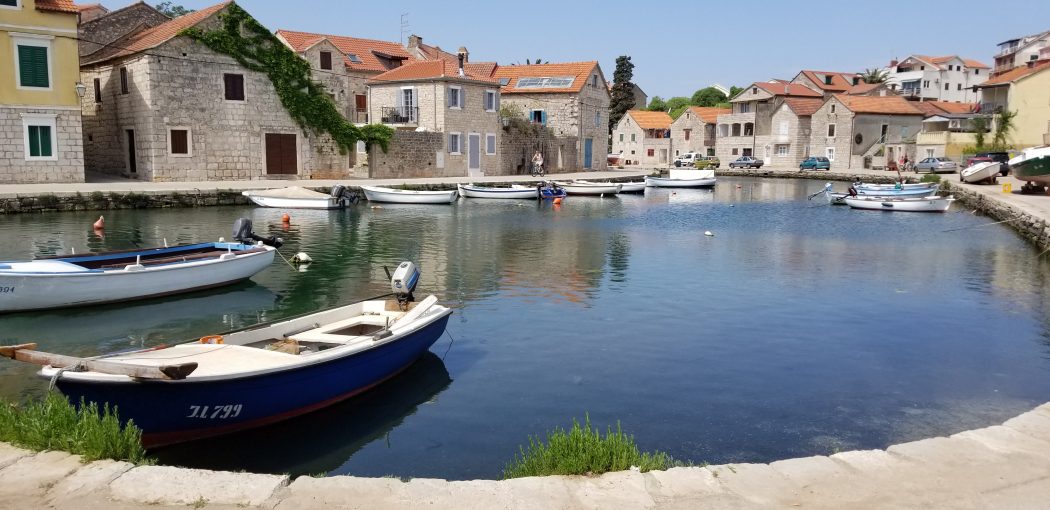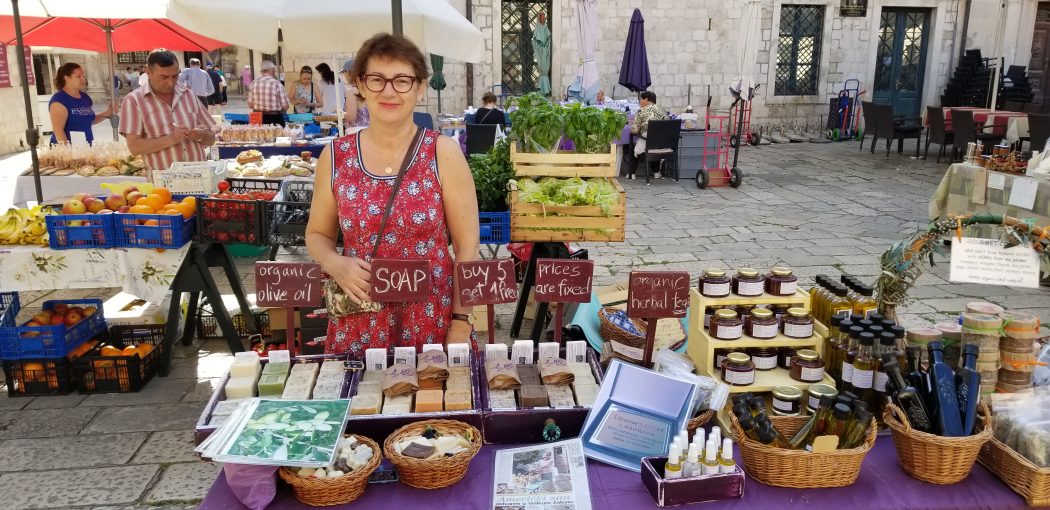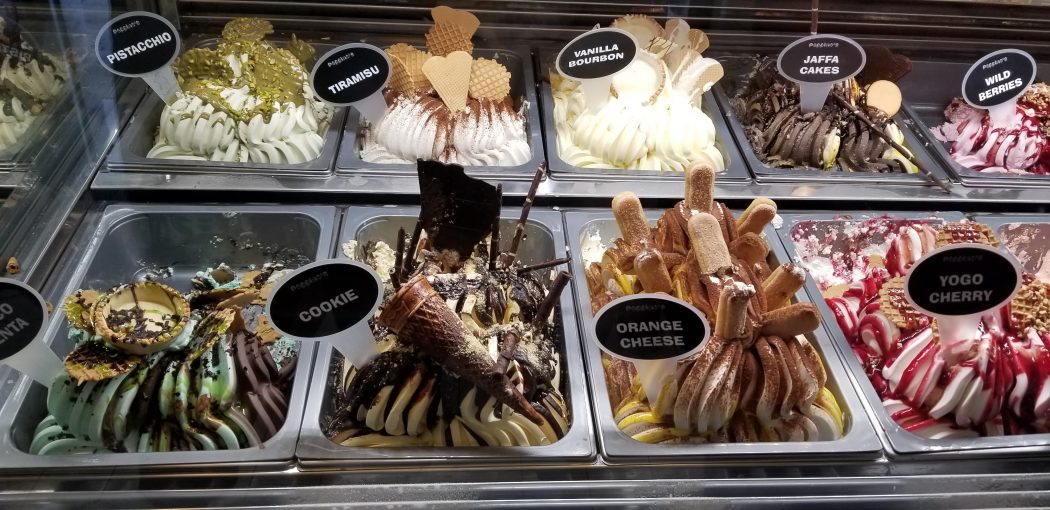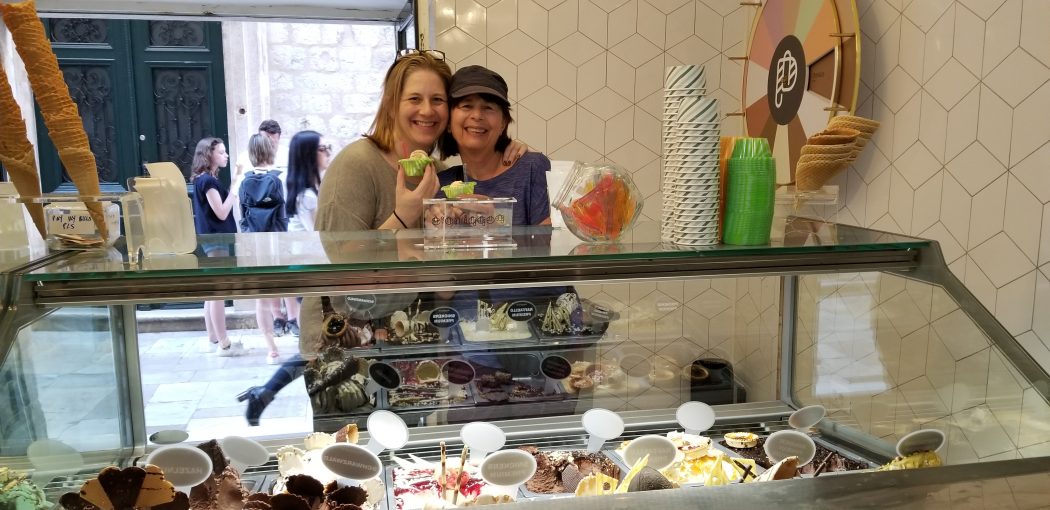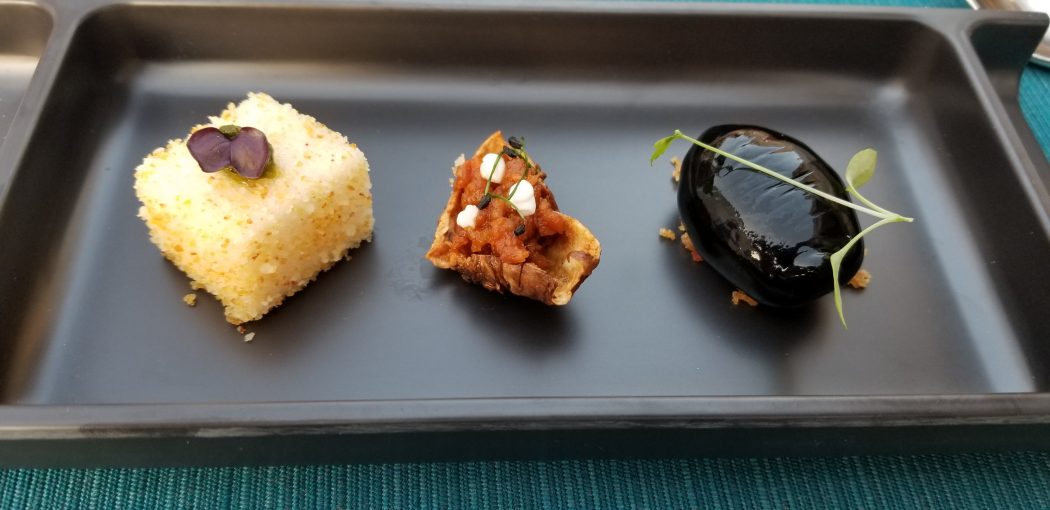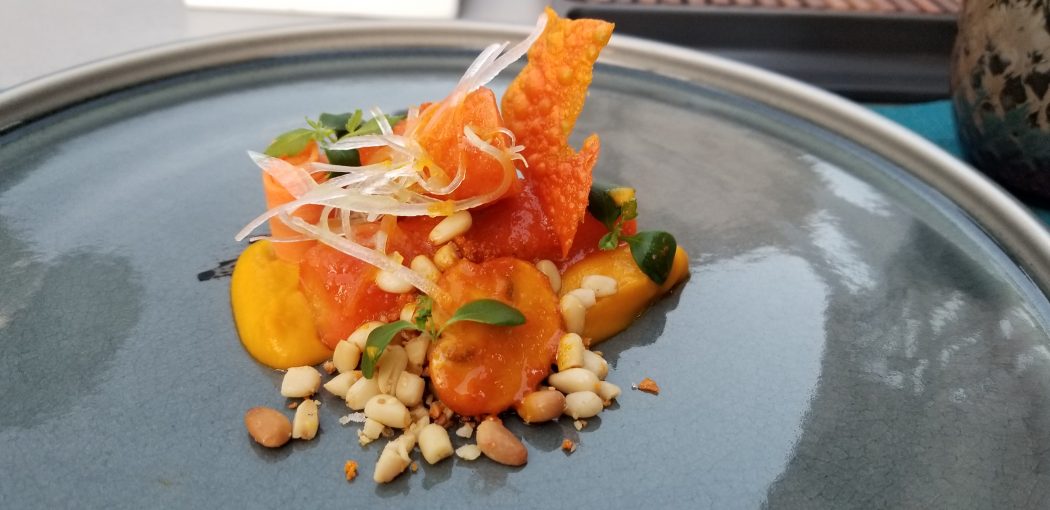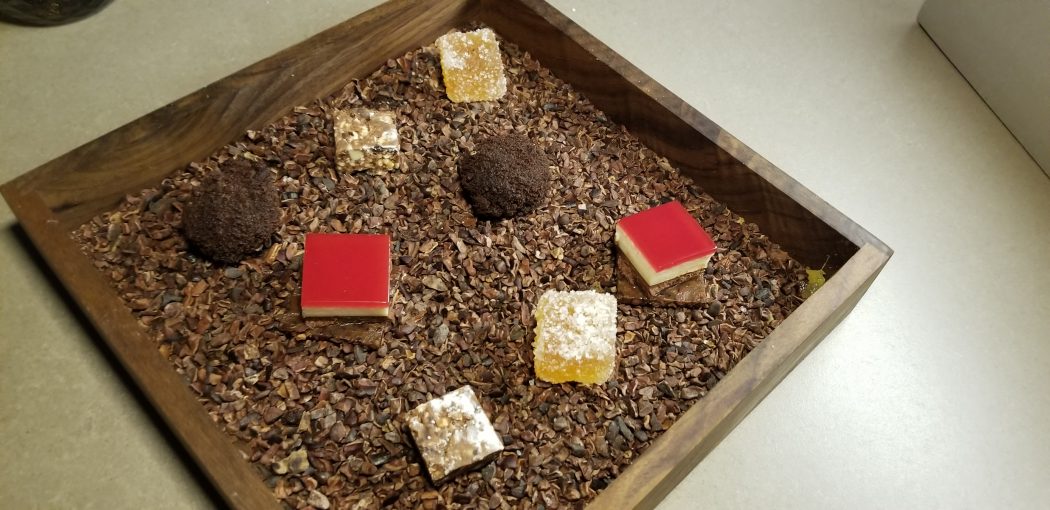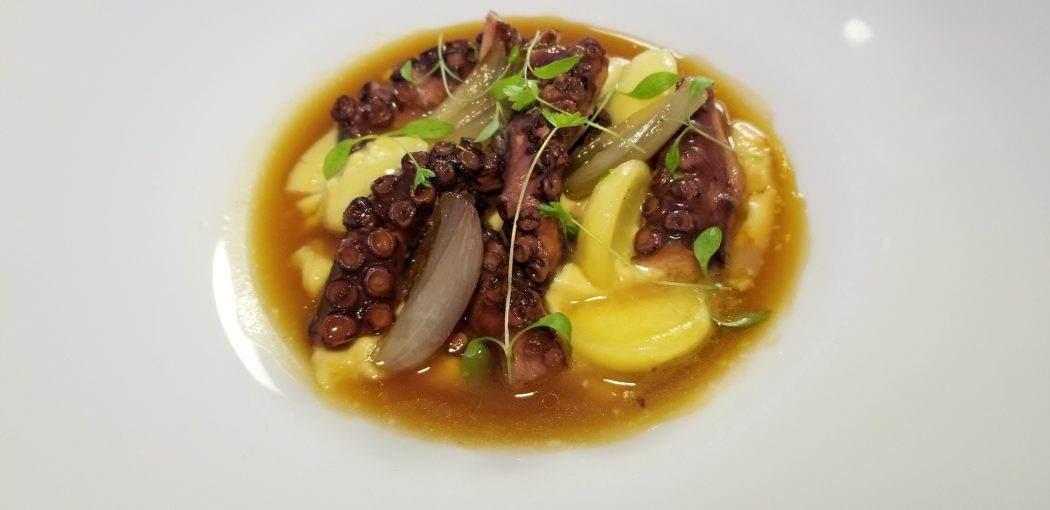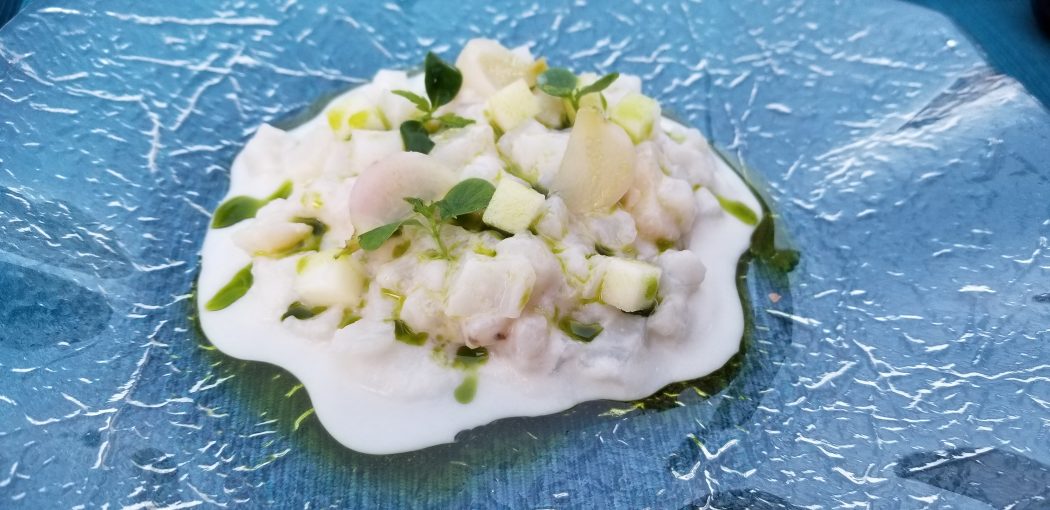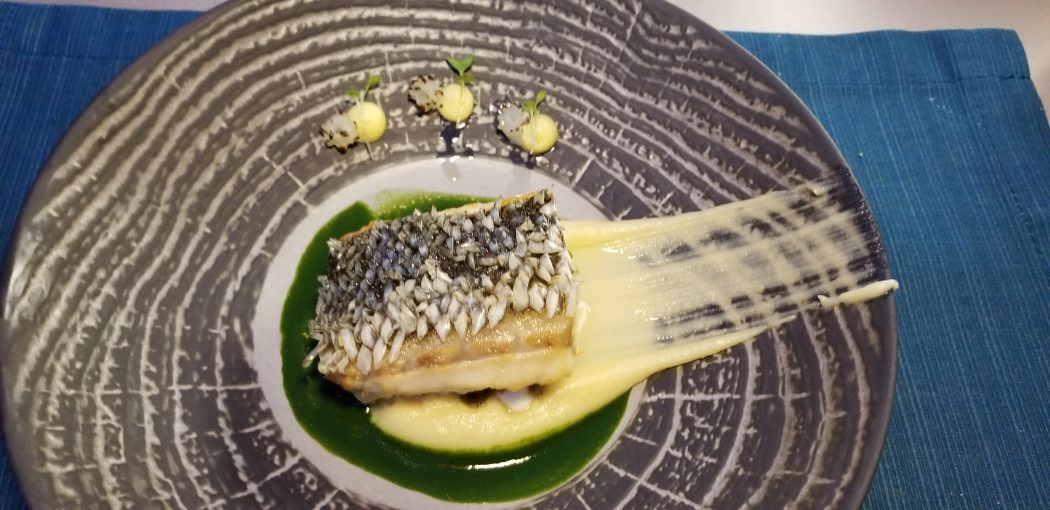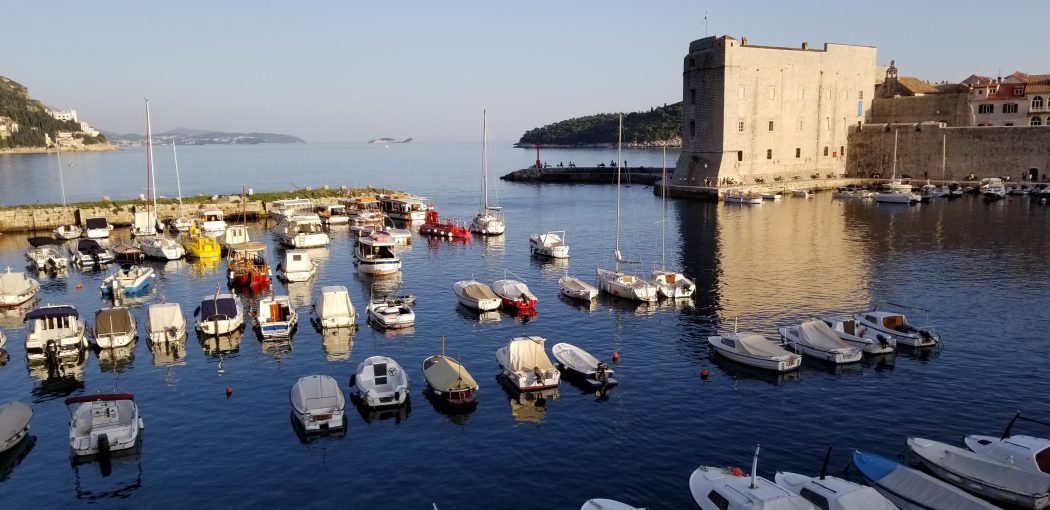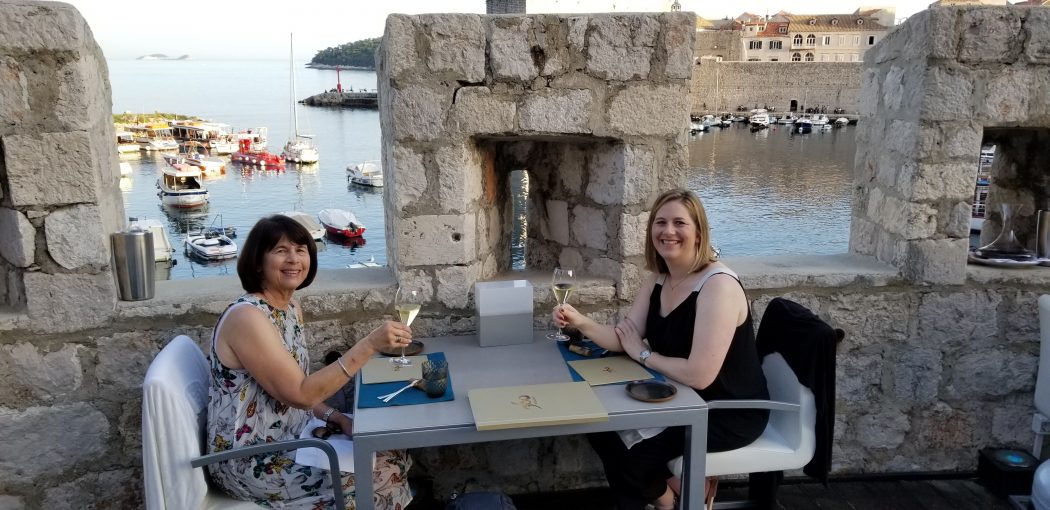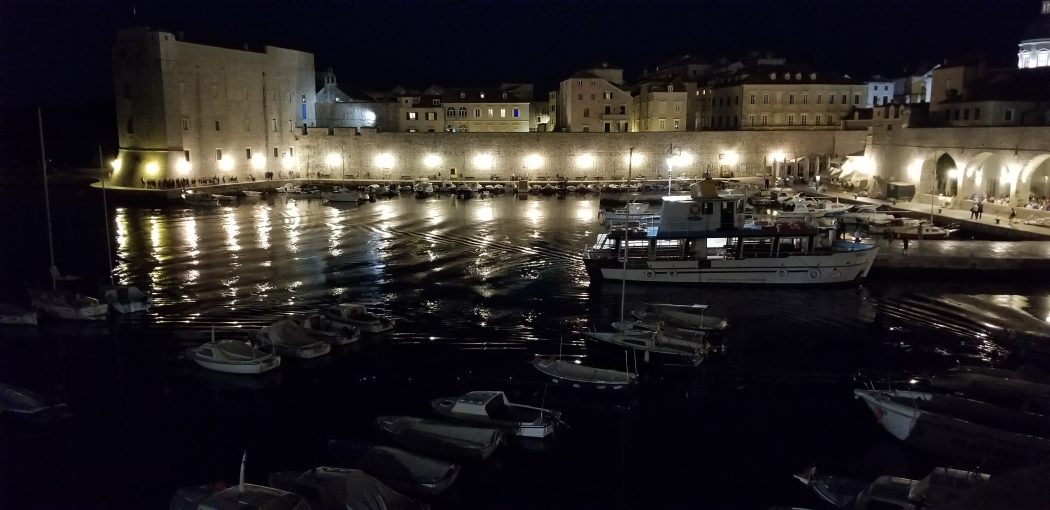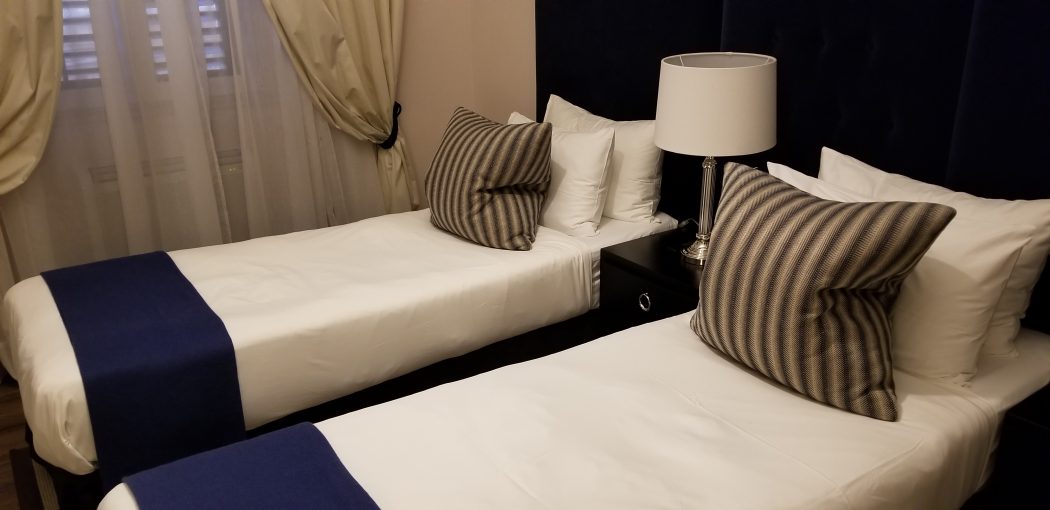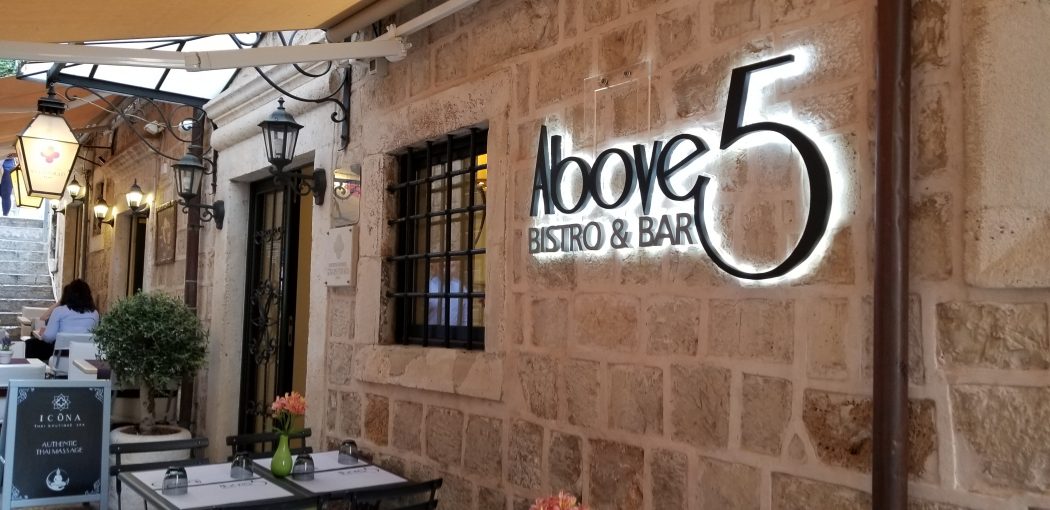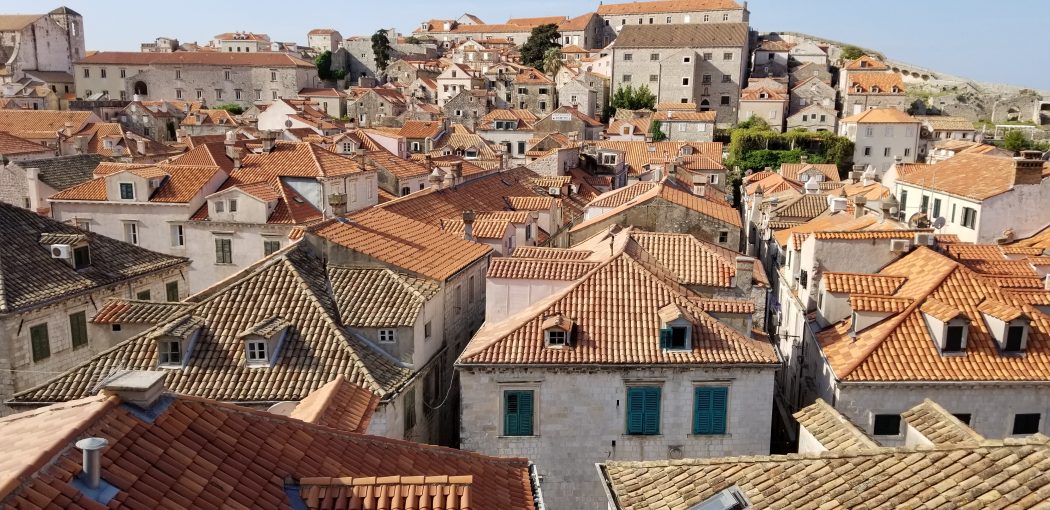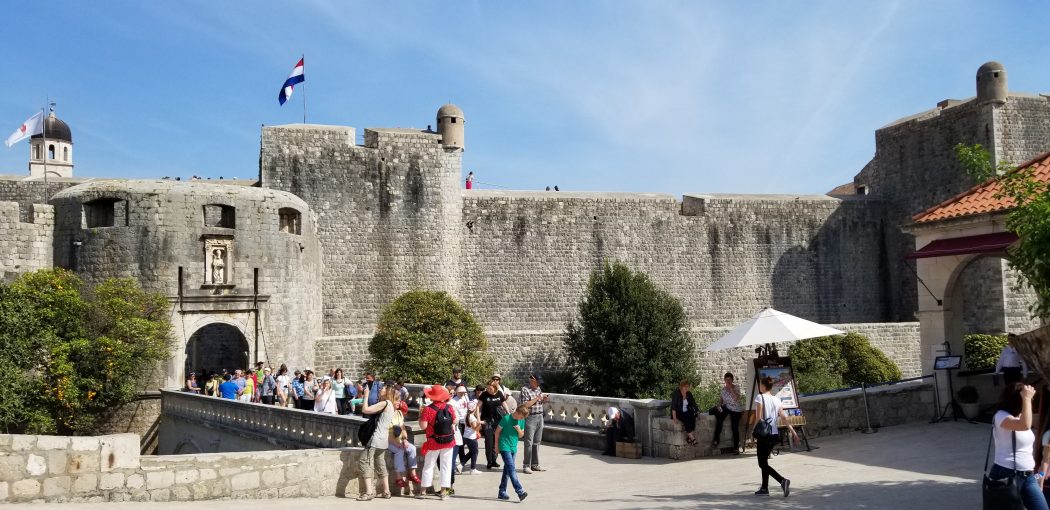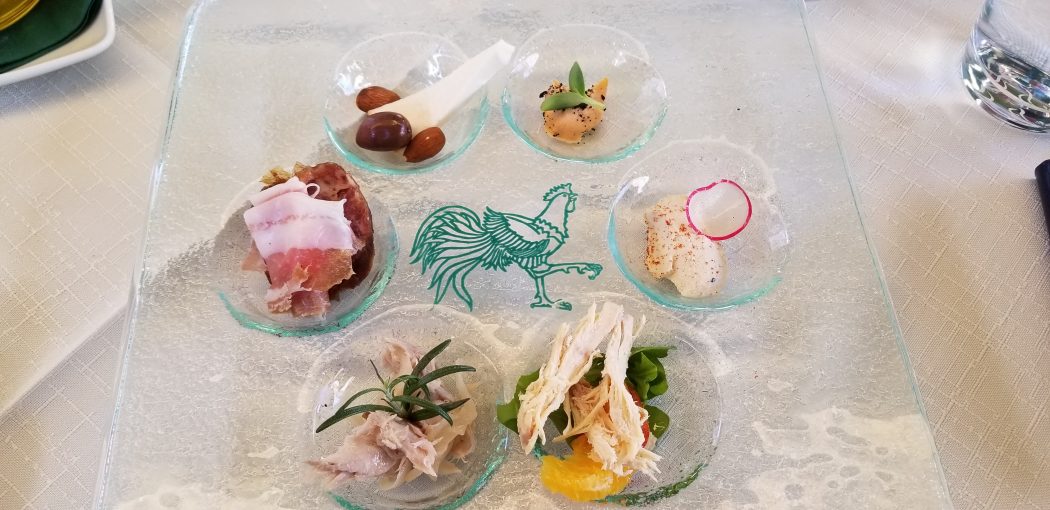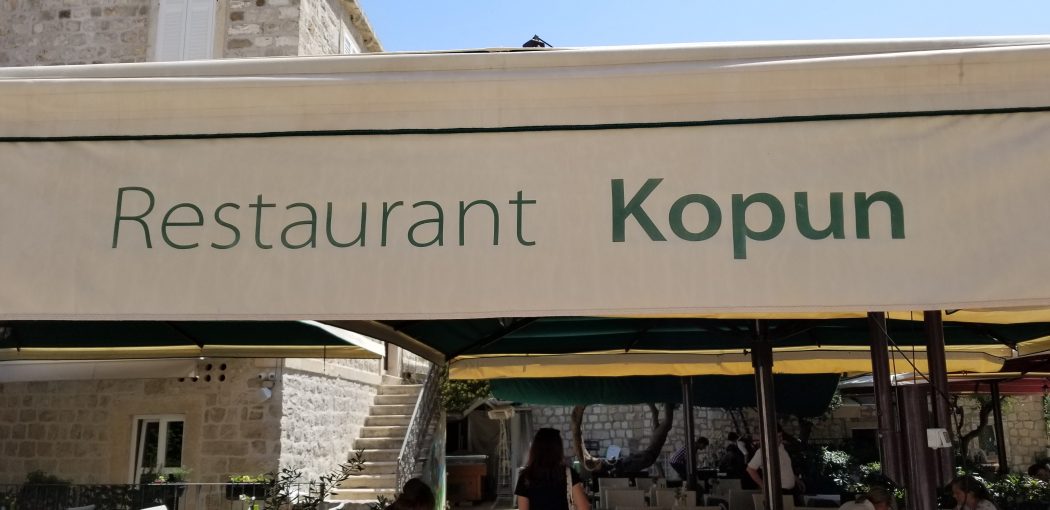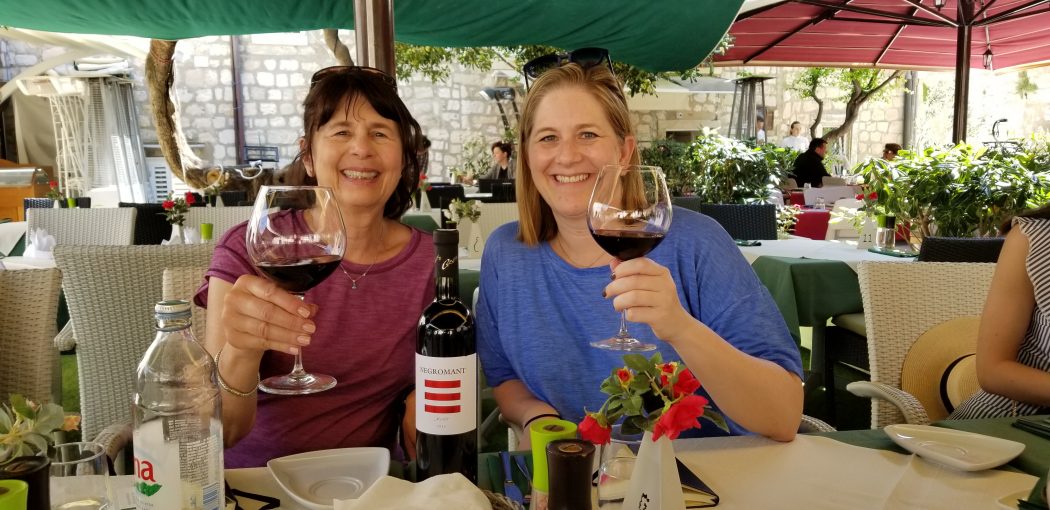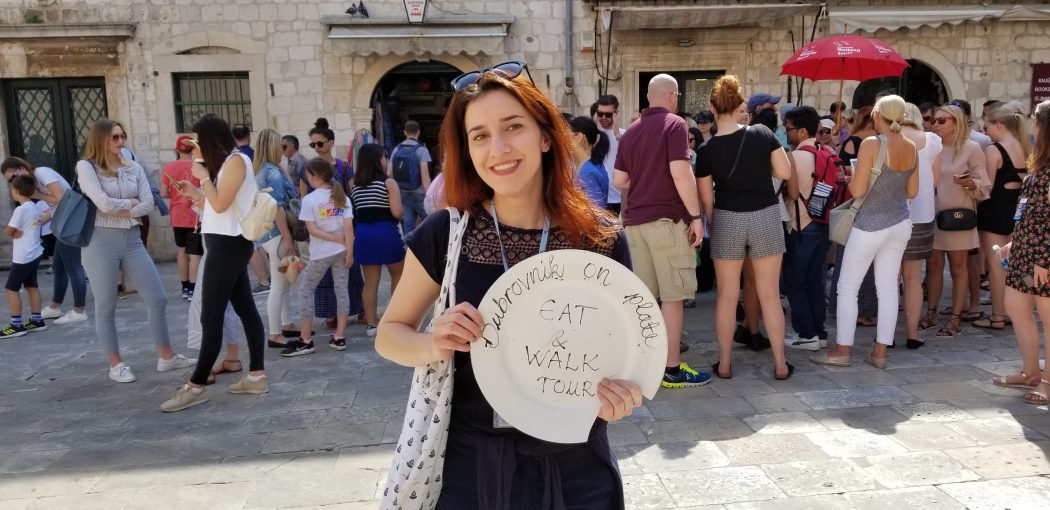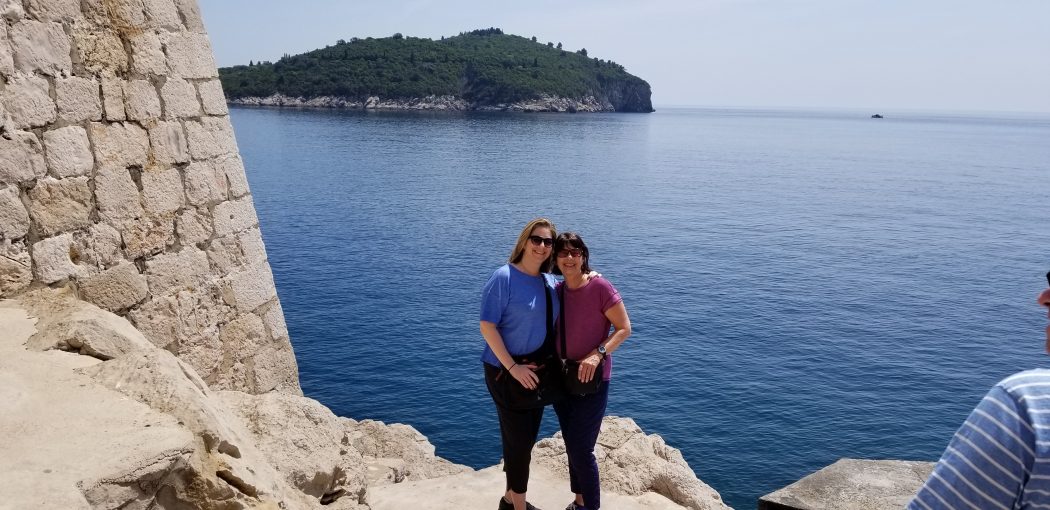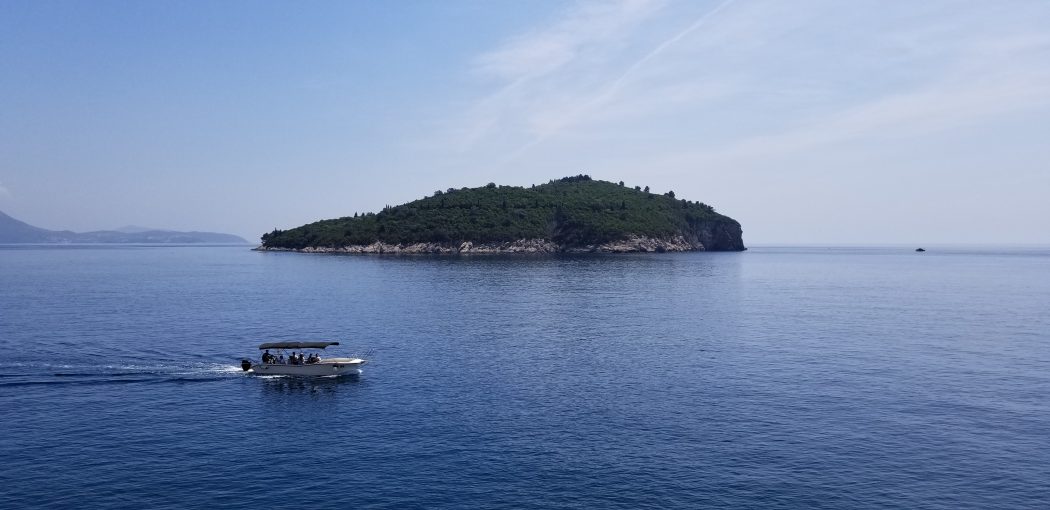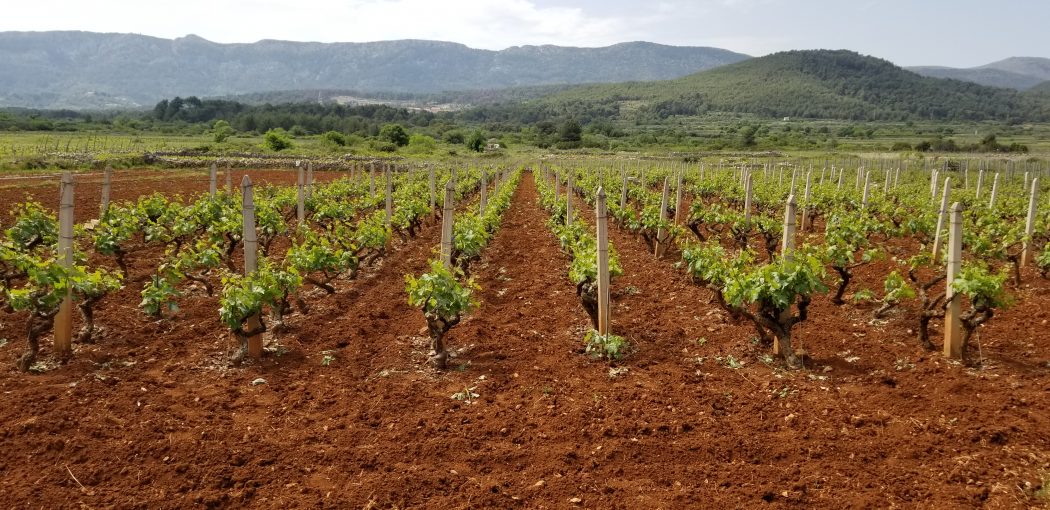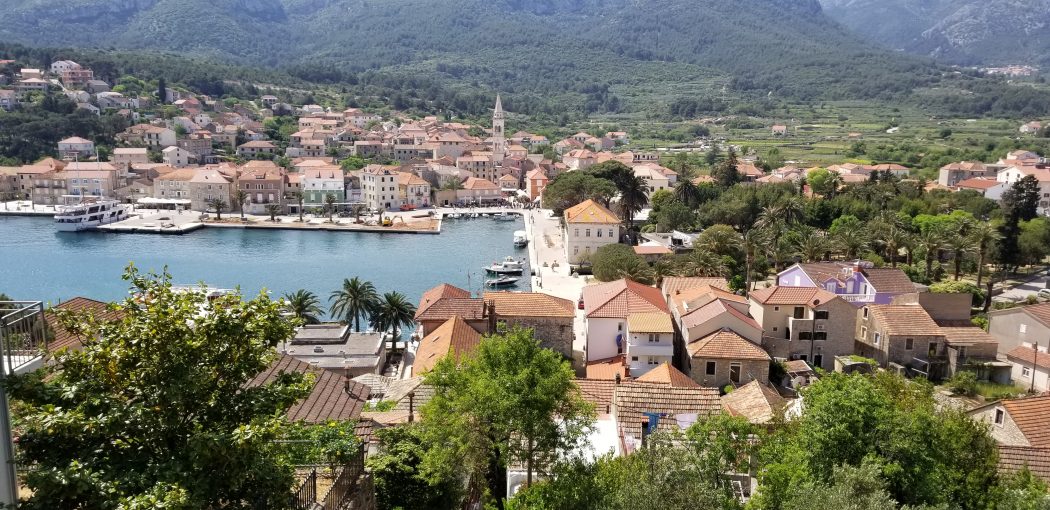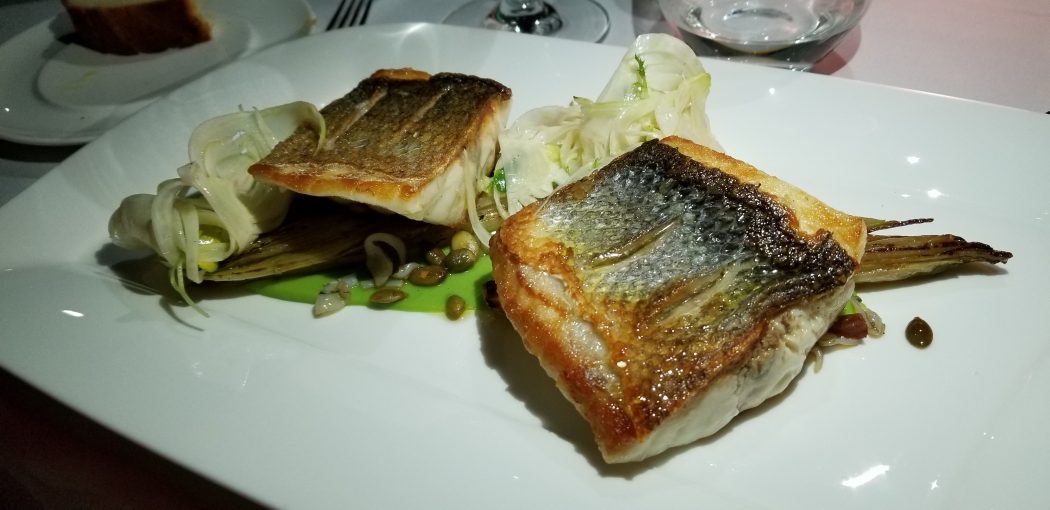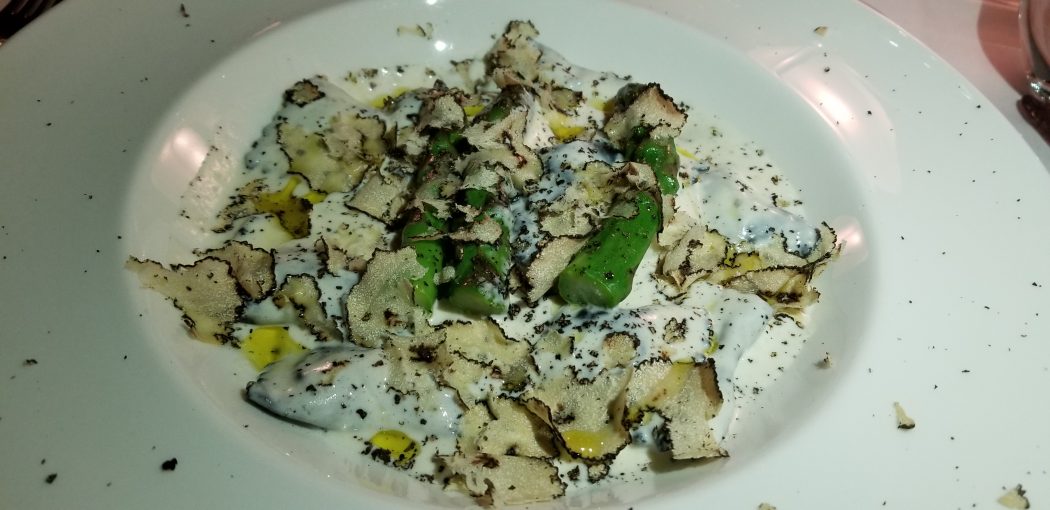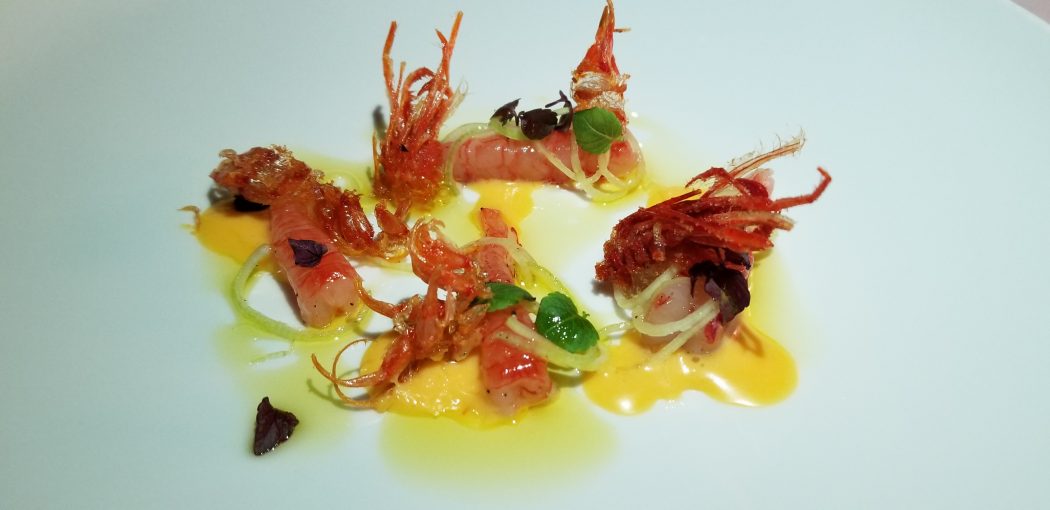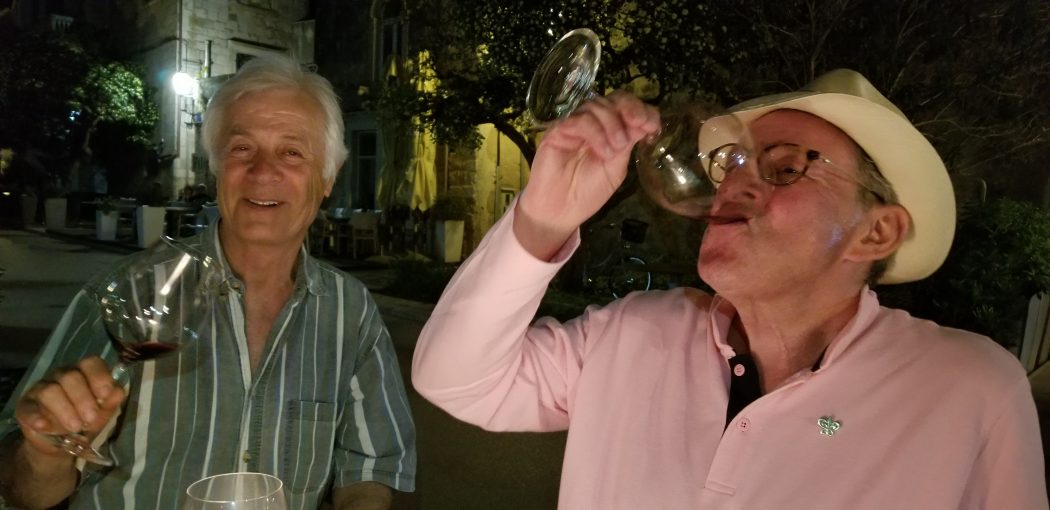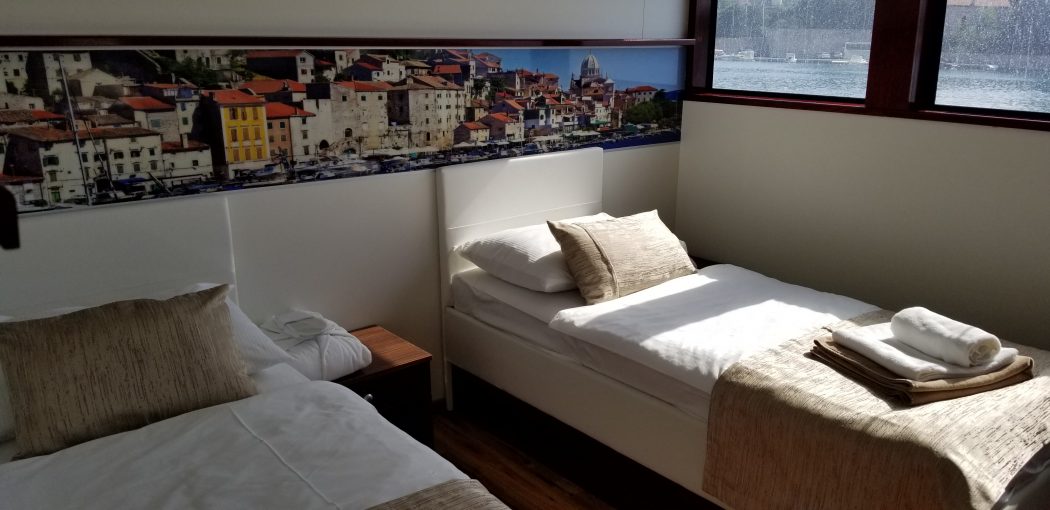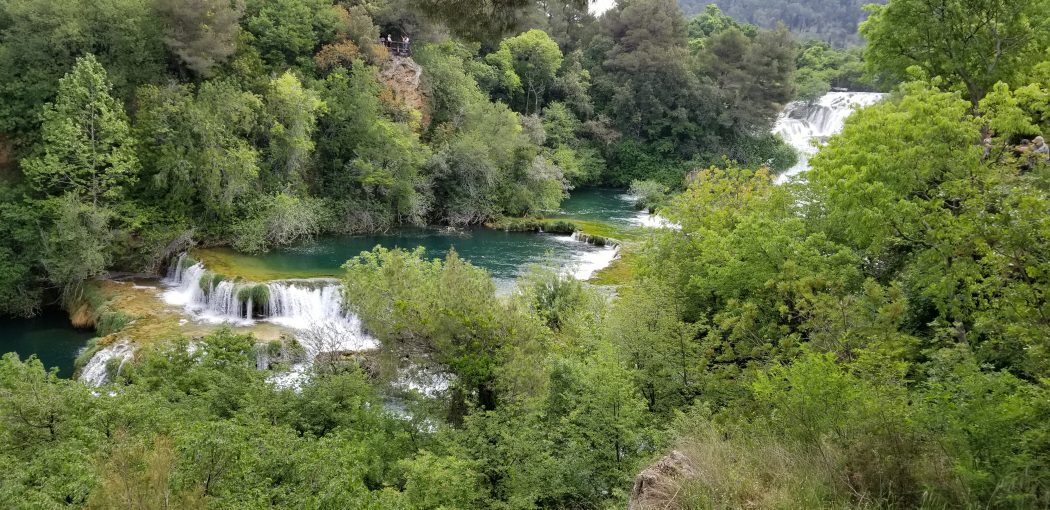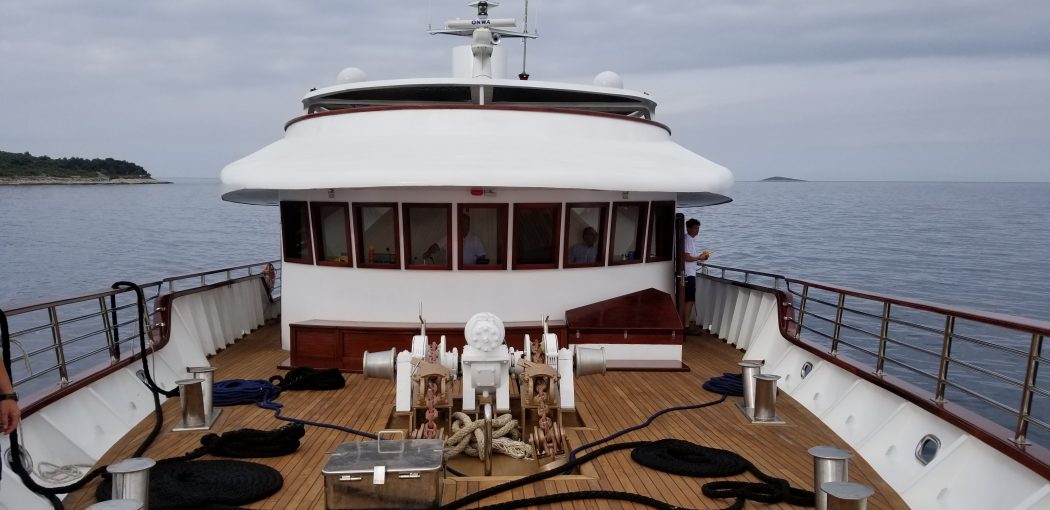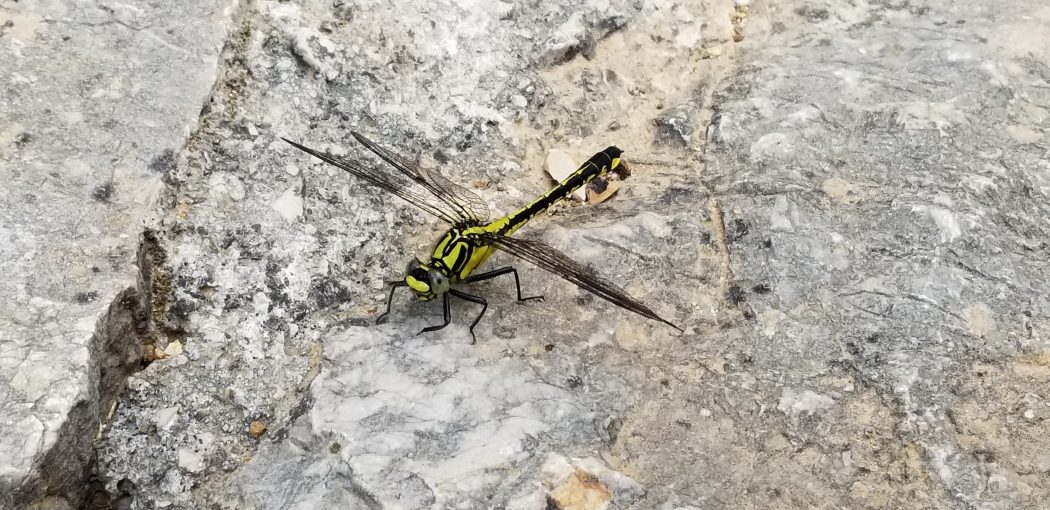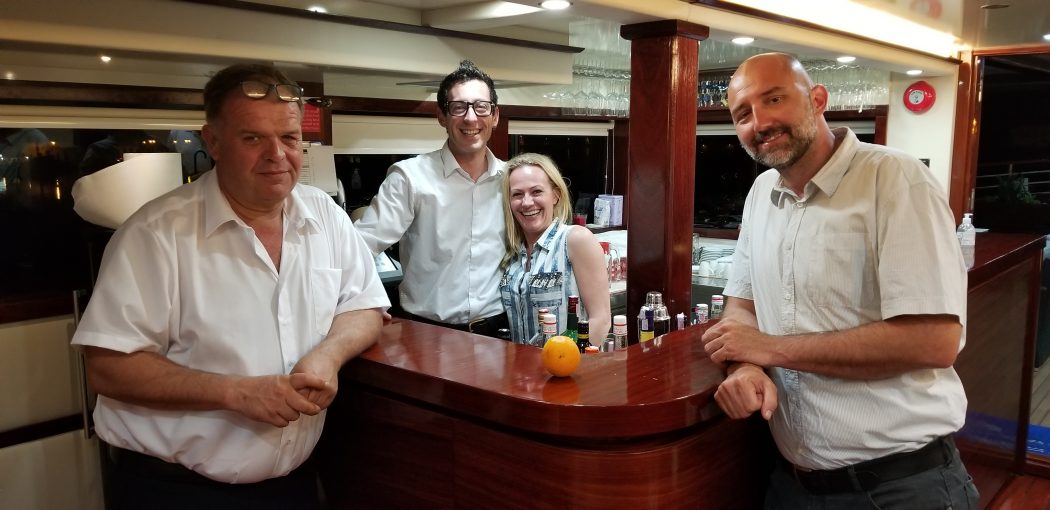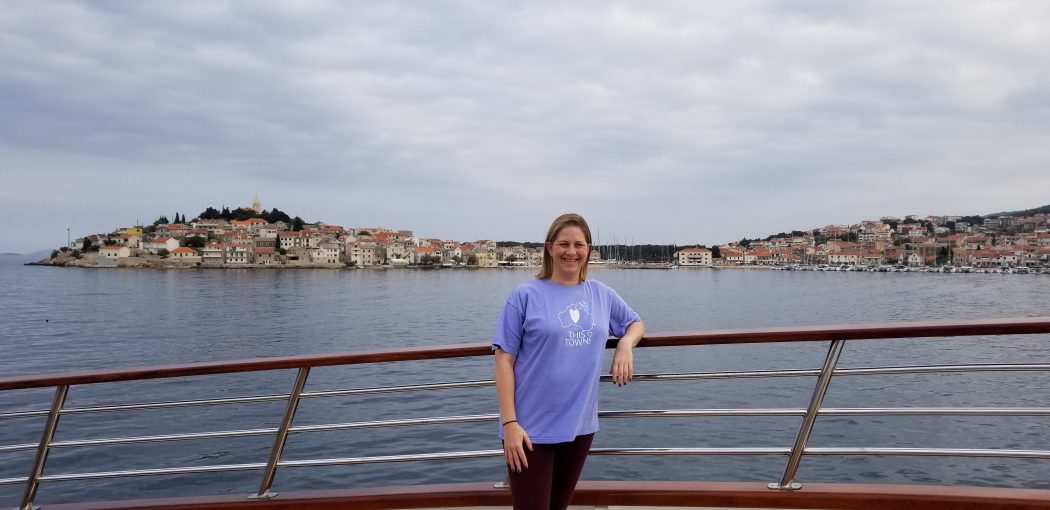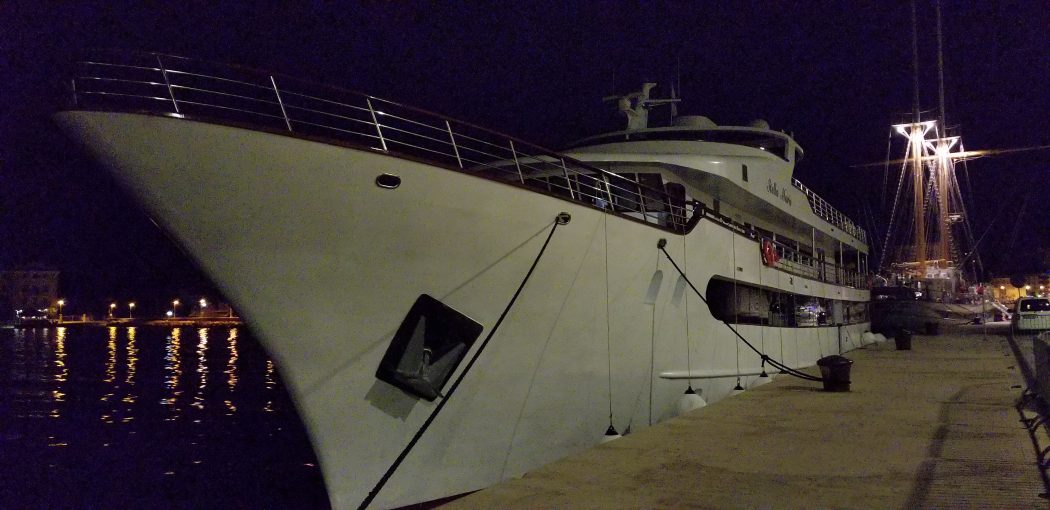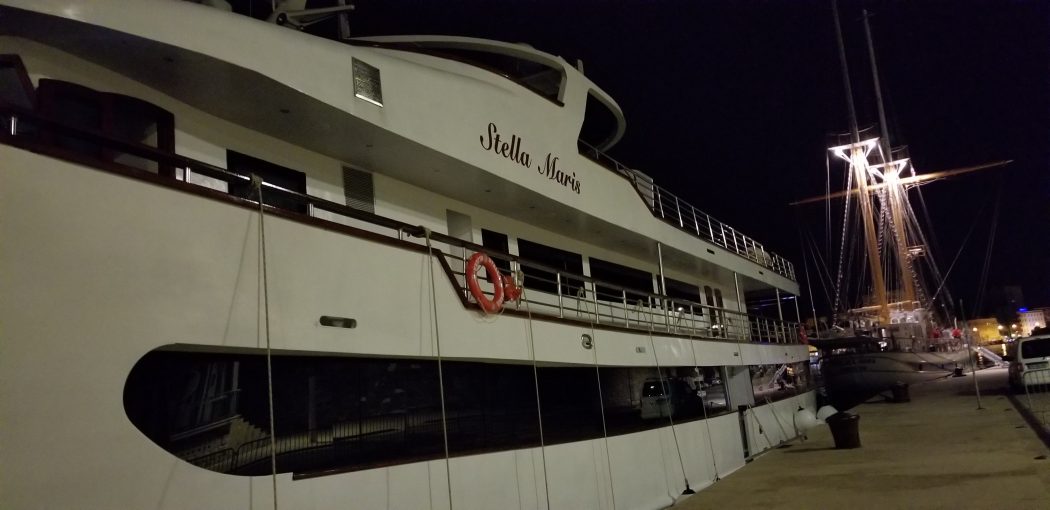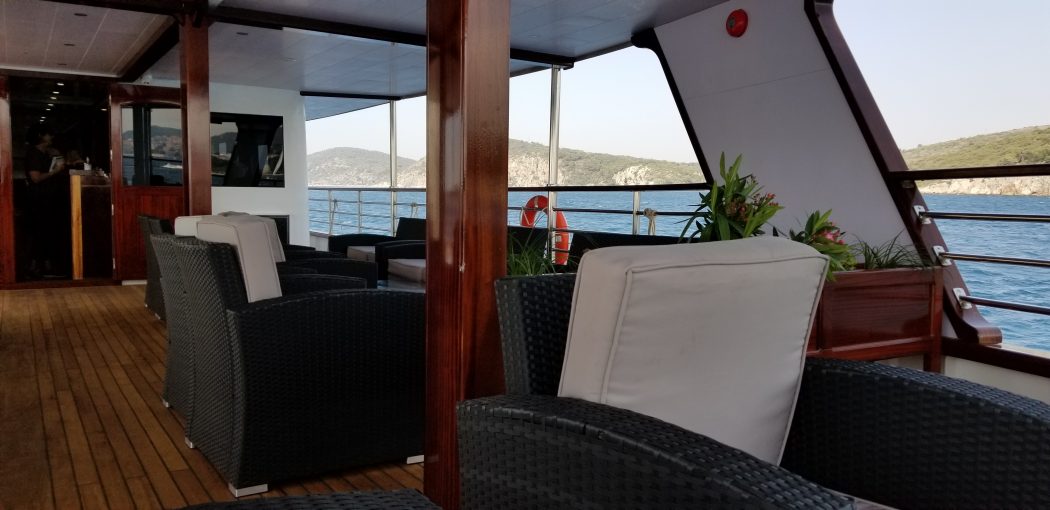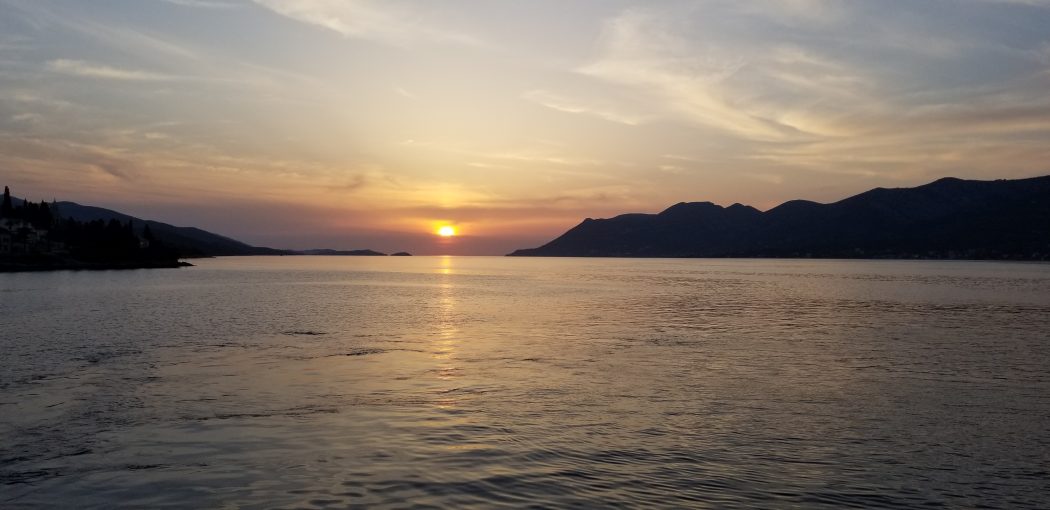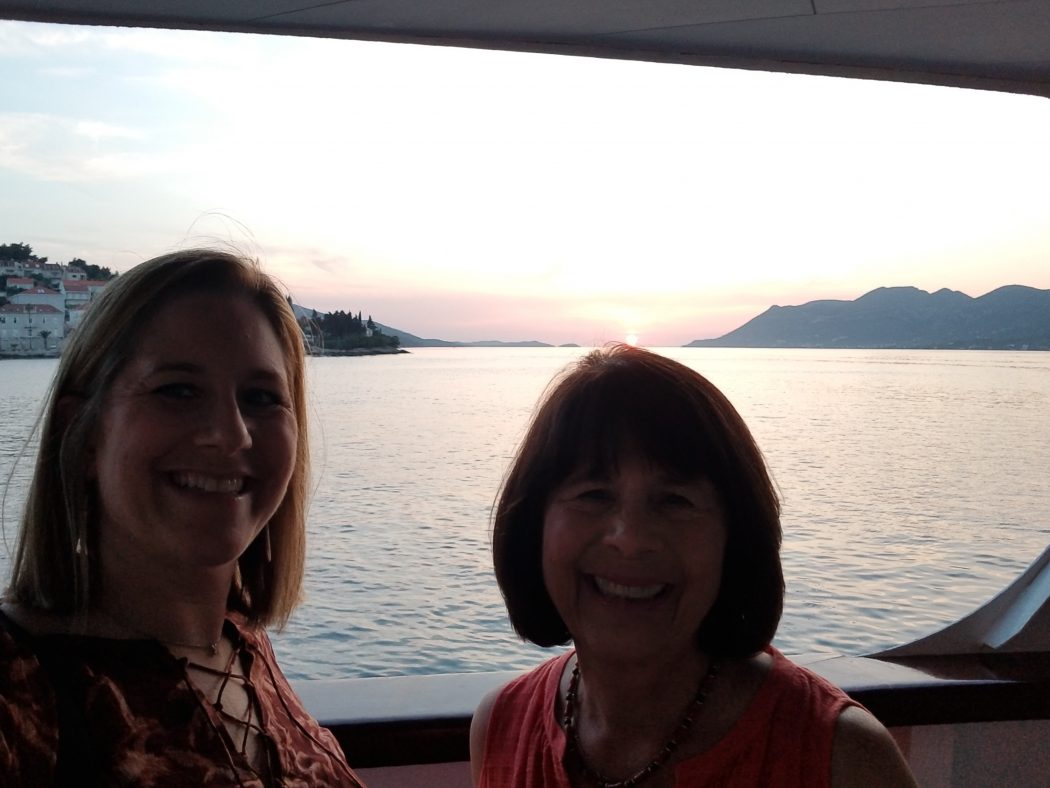What was once considered off the beaten path, Croatia is one of Europe’s hottest destinations. Perhaps it was the filming of Game of Thrones that opened the world’s eyes to the beauty of the country but regardless of what it is, people are flocking to the country in droves. Croatia had been at the top of my list to visit for the past few years. But with 21 regions and 1185 islands, 67 of which are inhabited, deciding where to go and what to see was overwhelming. To simplify the challenge, I invited my mom to join me for an Adriatic Sea cruise up the coast of Croatia.
The idea of a cruise is not my normal choice of travel. I imagined the large, floating cities with hundreds upon hundreds of passengers descending on the waters and once at port, flooding the streets. But, our boat, the Stella Maris (with Kompas International Travel Group) was nothing like that. Our boat accommodated 34 people. We had a spacious private room with large windows facing out to the sea. Each morning, we ordered coffee sitting on the deck, watching a rugged coastline, terraced vineyards, islands in the distance, and charming seaside villages.
The boat was quiet and peaceful, and it was lovely not to have to pack up and move each day from hotel to hotel. The service on the boat was friendly and professional and if you opted, there were guided tours provided at each stop. A huge plus of being on a small boat was its ability to dock directly in the ports of each village.
We started our journey in the historic city of Dubrovnik and spent seven days traveling up the coast towards Zagreb. Whether you go to Croatia and travel by boat or by car (there are ferry’s that can take you from island to island), these islands are definitely worth exploring!
[separator type=”thin”]DUBROVNIK
Our journey started in Dubrovnik, the Pearl of the Adriatic. An UNESCO World Heritage site, the city of Dubrovnik is the best preserved Medieval city with a recorded history that dates back to the 7th century. Dubrovnik is a small and beautiful city that can be walked in a total of two-and-a-half hours. It is also home to 48 churches. While more than 5000 people lived in the old city of Dubrovnik before the war in 1991, today only 1150 people live in the old city. Cars are not allowed inside city, so you will be dropped off by a taxi at the town’s entrance.
WHAT TO DO
Stroll the streets of Dubrovnik on your own. The main street Placa, as well as side streets, are lined with cafes, restaurants, shops and galleries. You can also walk on the city’s 80-foot high medieval wall that wraps the old town. Or take a cable car up Srđ Hill for magnificent views of Dubrovnik and the surrounding islands.
If you have a few hours in Dubrovnik, take a food tour with Dubrovnik Food Story, a company started by sisters Maria and Ana. This walking tour will not only include the history of Dubrovnik but will also take you to five local restaurants to try everything from Bosnian food and seafood to local pastries, wines and liquors.
WHERE TO EAT
Restaurant 360 is built in the city wall, enjoy panoramic views of the harbor. The menu features a modern and artistic take on Mediterranean cuisine. And, this eleven-year-old restaurant just received a Michelin Star.
Where to Stay
While there are many hotels outside the old town, there are only two boutique hotels in the city and many apartments available through AirBnB. The Boutique Hotel Stari Grad (Od Sigurate 4, Old Town, 20000 Dubrovnik) is a 16th century residence that has been converted into a modern 8-bedroom boutique hotel tucked just off the main street in Dubrovnik. Breakfast is included with the room on the rooftop terrace with panoramic city and sea views.
[separator type=”thin”]MLJET
The island of Mljet is a national park. It is 37 kilometers long and 3 kilometers wide with a population of 1088. From the port, we took a walk through the dense pinewood forest, passing two saltwater lakes. From one lake, you can take a small boat to the middle of the lake where you will come across a 12th century monastery and the Church of Saint Mary. If you have time, you can bike around the lake or swim in the water.
[separator type=”thin”]KORĈULA
The walled city of Korĉula is quiet and charming island that is home to 2500 people. Korĉula was first founded by a Celtic tribe, the Illyrians, more than 2000 years ago. The Greeks then came, followed by the Romans who fortified the town by building a wall. Korĉula then became part of Venice as it is located on one end of the Silk Road. Explorer Marco Polo is from the island of Korĉula.
Kroĉula is known for its white wines. Be sure to try GRK, which means Greek. There are only eight producers who make Grk, a grape that can be traced back to the 4th century but was almost extinct until now. There are only 30,000 bottles of the crisp, floral wine and while you might be able to find a bottle in Zagreb or Dubrovnik, Korĉula is your best chance to try it.
WHERE TO EAT
Located on the main promenade of Korĉula, Lešič Dimitri Palace Restaurant is the restaurant associated with the boutique hotel is in an old palace. The restaurant is located where the old fortified wall used to be and seats 40-50 people outside (additional indoor seating is available). Chef Marco Gajski has created a menu of local dishes with a modern twist using only sustainable ingredients.
[separator type=”thin”]HVAR
While only 12,000 people live on the island of Hvar, more than 80,000 tourists visit each year. Perhaps it is because Hvar is one of the sunniest cities with more than 2700 hours of sun per year. It is also the longest Croatian island at 74 kilometers long. Hvar is celebrating its 150th anniversary of organized tourism this year and was also nominated for the title of Best European Destination 2018.
To explore Hvar, head beyond the main port to discover some hidden gems. Take a private tour with Natural Hvar Tour, a small tourism company run by Grgo Matkovic. A native of Hvar, Grgo will share his love and enthusiasm for the island. Natural Hvar Tours offers hiking, biking and wine tasting tours, as well as a private tour by car.
Nature, beauty, wine, food and fun were all part of our visits to the islands of Croatia. While we did not make it to all 67 inhabited islands of Croatia, Mljet, Kroĉula and Hvar are three not to be missed. But this was only half of our journey up the coast of Croatia … to be continued in PART 2.
[separator type=”thin”]
